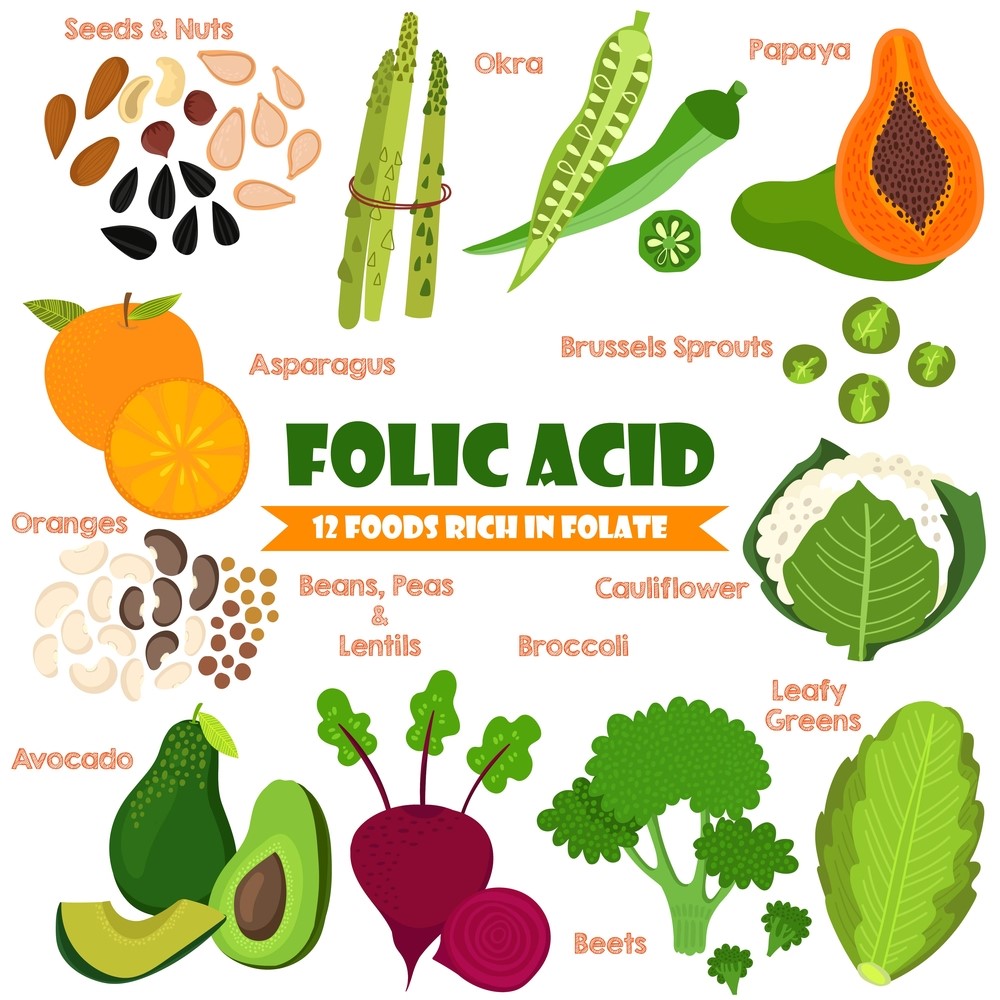
Folic Acid 101: Everything You Need to Know
If you’re interested in nutritional health, you may be wondering if there’s a difference between folate vs folic acid. Is there a reason that doctors recommend folic acid for pregnant individuals? What makes the difference between folate vs folic acid? Do you need more folate vs folic acid in your diet? There are many things you may not know about your diet’s overall health, so it makes sense to start looking for more helpful information.
If you’re interested in learning the difference between folate vs folic acid, we may be able to help you understand. There are a few things that make one more usable and accessible than the other, and each one offers its own positive aspects. If you want to learn more about the differences between folate vs folic acid, you’re in the right place. Please continue reading to learn more and to gain our complete breakdown.
What’s the Difference Between Folate vs Folic Acid?
At a high level, there is one main difference between folate and folic acid. Folate is the natural form of B9 in food, while folic acid is a synthetic form often included in supplements. One of these—folate—may be easier to process within your body than the other, but taking a supplement is likely the more straightforward habit to form. However, a high intake of folic acid may lead to an increased blood level of the unmetabolized substance. Folate is also more readily available to the body and doesn’t pose any risk of buildup.
If it’s true that folate is less likely to pose a risk of buildup in the body, then why is it okay to recommend an increased intake of folic acid to pregnant individuals? Are there certain positive aspects of taking folic acid that make it preferable to folate for some people?
Folic Acid is Easier to Take
If you need to boost the amount of folate in your diet, you may have difficulty getting enough to meet your body’s needs. In the case that you’re pregnant, this may be especially true. Supporting your body’s health and the health of a future baby is essential for everyone involved.
Rather than needing to intensely change your folate intake through your diet, taking a supplement with folic acid may be far more accessible. Especially if you don’t need to make a long-term change, this may allow you to avoid learning all new recipes or making a massive change in your diet. This may be essential to pregnant individuals who are generally advised to take folic acid supplements for up to six months.
Folic Acid Prevents Issues During Pregnancy
Why are people who intend to get pregnant generally advised to take extra folate or folic acid? Most doctors recommend taking at least 400 micrograms of folic acid for approximately three months before getting pregnant and during the first trimester of pregnancy. This is because folic acid has been found to prevent certain issues during pregnancy, including specific congenital disabilities.
In particular, folic acid can help prevent neural tube defects. If your doctor has determined that you are more likely to be affected by these issues, you may be told to take a higher dose of folic acid. By taking five milligrams of folic acid if you are at high risk, you lower the probability of running into these kinds of issues.
There are several items that might make you at higher risk, including if you or the person who impregnates you has a neural tube defect, have a family history of neural tube defects, if you have had a previous pregnancy that’s been affected by a neural tube defect, or you have other medical issues. If you have diabetes, take medication for HIV, or take medication for epilepsy, these may also have an effect. Do any of these apply to you? If so, please speak to your doctor or general practitioner.
It’s Difficult to Get Enough Folate During Pregnancy
Why do doctors recommend women take at least 400 micrograms of folic acid daily? This is because it’s challenging to get enough folate during pregnancy through your diet. There are many great sources of vitamin B9, including dark leafy greens, legumes, whole grains, seafood, liver, and fruit. However, an increased intake may be tricky for many individuals to balance daily.
Pregnant individuals may also feel nauseous or have strange cravings, making it even more challenging to get enough folate into your diet. Most doctors and general practitioners will applaud those who can get enough folate from natural sources, but this is highly impractical for most people who have busy lives. Additionally, the availability of folic acid supplements may make this unnecessary for many people. In fact, folic acid is often included in many prenatal vitamins.
Conclusion
If you wanted to learn more about the differences between folate vs folic acid, we hope you found our breakdown helpful. Getting enough folate into your diet can be difficult, especially if you’re preparing for or currently experiencing pregnancy. If you want to ensure you get enough vitamin B9 into your diet, speak to your doctor and see if you need to take a folic acid supplement.



